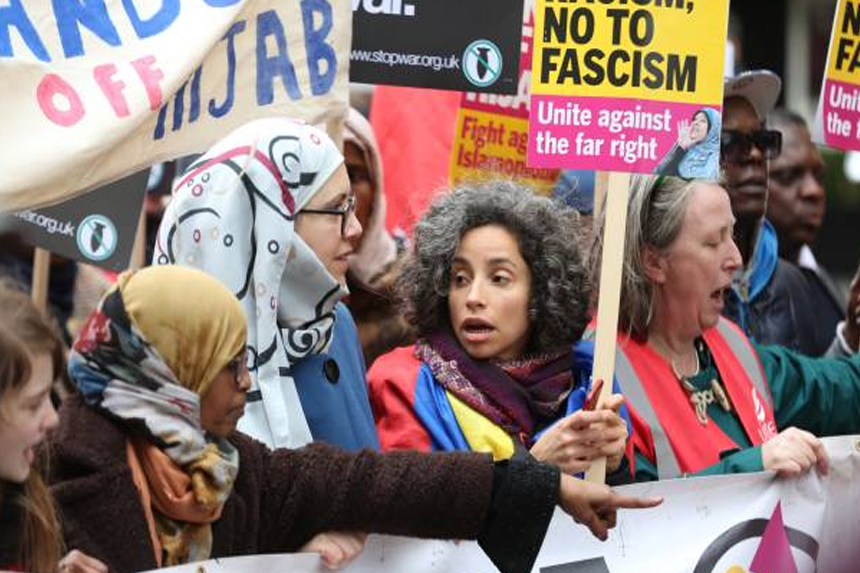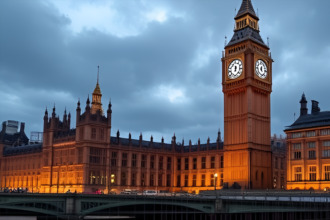Fear of impending violence has gripped England, prompting businesses to shutter their doors and fortify premises ahead of over 100 planned far-right rallies across the country. As darkness fell on Wednesday, a chilling atmosphere enveloped communities, with shopkeepers opting to close early or board up their establishments entirely.
The looming threat has forced employers to prioritize employee safety, offering remote work options to those feeling particularly vulnerable. In Birmingham’s Jewellery Quarter, a once-bustling district transformed into a ghost town as businesses succumbed to the growing unease. Similar scenes unfolded in Bristol, where shopfronts bore the brunt of precautionary measures, particularly near immigration law offices.
North London’s Finchley High Road echoed the same narrative of fear and uncertainty. Estate agents Foxtons shuttered its doors, citing potential violence linked to the planned rallies as the reason. The company’s decision extended to other branches in Walthamstow, Harrow, and Croydon, all areas identified as potential targets by far-right groups.
Middlesbrough and Aldershot also found themselves caught in the crosshairs. Businesses in both towns opted for early closures, with some even displaying explicit warnings to potential rioters about the presence of surveillance equipment.
The recent surge in violence, primarily targeting mosques, hotels housing asylum seekers, libraries, and shops, has cast a long shadow over the nation. Saira Hussain, an architect with offices across the country, described the situation as a “ghost town,” highlighting the devastating impact on businesses, particularly during a typically busy period.
The crisis has also taken a severe toll on the mental health of business owners and employees. An immigration advisory service manager in the East Midlands expressed profound fear and distress over threats directed at their workplace and the wider community.
Small businesses in Essex, too, have been forced to adapt to the escalating situation. Shopkeepers in Westcliff-on-Sea have boarded up their premises and sought reassurance from local police.
As the nation grapples with this unprecedented crisis, calls for unity and support for affected businesses have grown louder. Helen Dickinson, chief executive of the British Retail Consortium, condemned the violence and urged for the full force of the law to be brought against perpetrators. Martin McTague, national chair of the Federation of Small Businesses, emphasized the disproportionate impact on small businesses and called for an end to the violence.
Politicians have also weighed in, with Sarah Sackman, MP for Finchley and Golders Green, vowing to stand against hate and division.
The ongoing crisis serves as a stark reminder of the urgent need to address the underlying issues fueling the far-right extremism that has gripped the nation.








